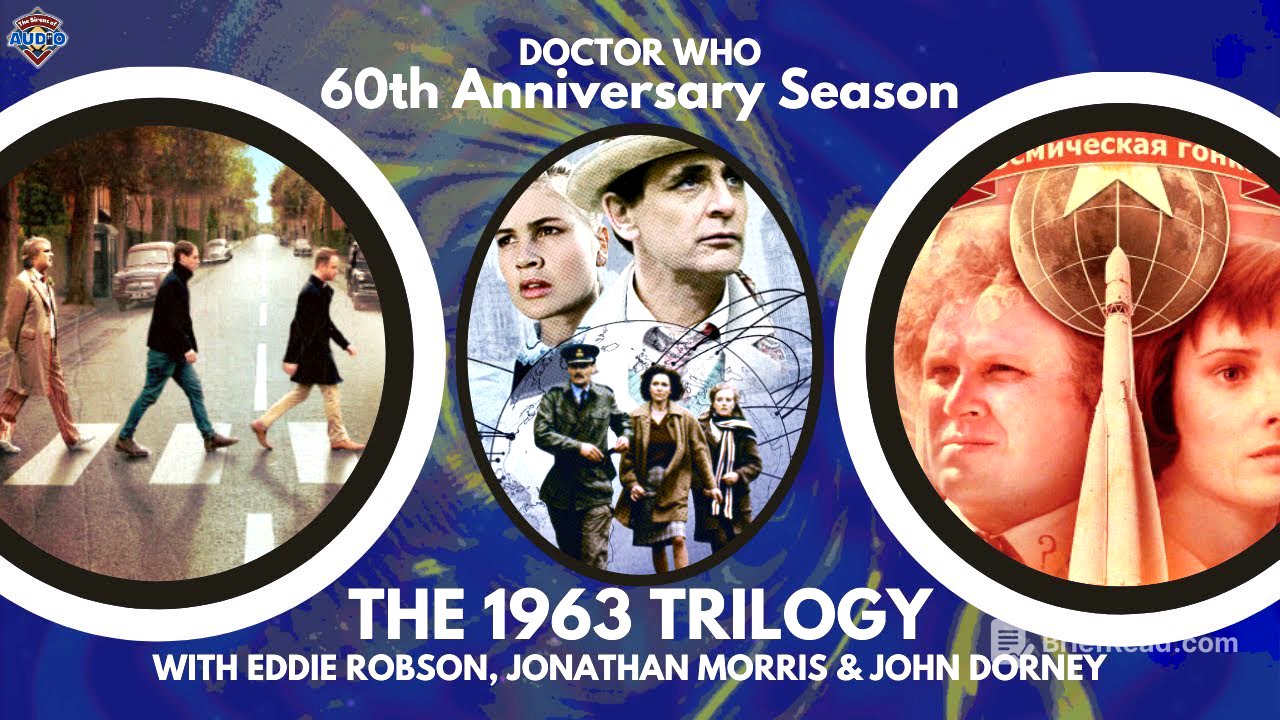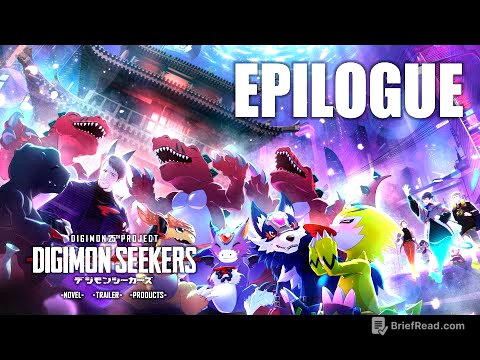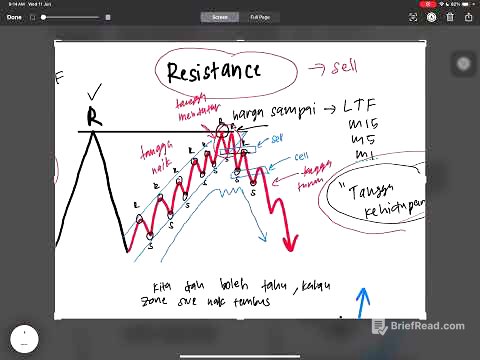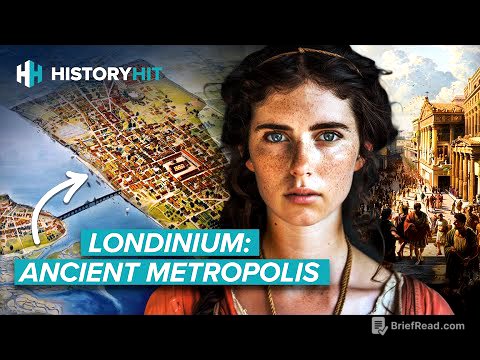TLDR;
This episode of The Sirens of Audio celebrates the 60th anniversary of Doctor Who by focusing on three Big Finish audio dramas released for the 50th anniversary in 2013, known as the 1963 Trilogy. The hosts interview the writers of each story: Eddie Robson ("Fanfare for the Common Men"), Jonathan Morris ("The Space Race"), and John Dorney ("The Assassination Games"). They discuss the inspirations, challenges, and creative decisions behind these stories, which all tie into significant events and themes of 1963.
- The trilogy explores key events of 1963, the year Doctor Who began.
- Each story offers a unique take, from Beatles-inspired mania to Cold War espionage and political thrillers.
- The writers discuss the challenges of incorporating real historical events and figures into Doctor Who narratives.
Intro [0:00]
Sean Carson introduces The Sirens of Audio and encourages listeners to engage with their content through reviews, likes, shares, subscriptions, and comments.
Show Intro [0:55]
Dwayne and Phillip introduce the episode, which focuses on three Big Finish Doctor Who stories from 2013, commemorating the show's 50th anniversary. These stories form the "1963 Trilogy," a set of narratives set around the year Doctor Who first aired. The hosts mention that Big Finish often releases stories in trilogies, and this particular trilogy precedes "Light at the End." They also announce that they will be interviewing the writers of each story: Eddie Robson, Jonathan Morris, and John Dorney.
Rabbit Hole Question [2:58]
Dwayne poses a question about major historical events referenced in Doctor Who and what the hosts remember doing when those stories were released. Phillip recalls listening to the first series of "Manan" in Melbourne and a Torchwood story while walking along the M2 Motorway. Dwayne remembers watching "Attack of the Cybermen" and observing Halley's Comet with his family telescope. They discuss the Australian Parliament House in Canberra, which features a tapestry with Halley's Comet hidden within it, dating the tapestry to the opening of Parliament in 1988. Phillip mentions the old Parliament House being turned into a museum and recalls security changes made to the new Parliament House over the years.
Rabbit Hole Discussion [8:52]
Phillip brings up the "Horror of Glam Rock" audio drama, which reminds him of the 1970s and his love for the music of that era. He contrasts his musical tastes with Dwayne's, who preferred Abba, The Beatles, Queen, and musicals. Phillip shares his early experiences with musicals, including seeing "Song and Dance" and "They're Playing Our Song." He expresses a preference for Stephen Sondheim's work. Dwayne mentions that Big Finish has a single episode based on prog rock, his favorite genre. Phillip notes the increasing trend of shows set in more recent historical periods, which can feel strange when the events are still within living memory.
Fanfare for the Common Men Blurb [12:00]
Dwayne reads the blurb for "Fanfare for the Common Men," a story featuring the Fifth Doctor and Nyssa. The story is set in November 1963 and revolves around a band called the Common Men, who are experiencing Beatlemania-like fame. The Doctor notices something is wrong when he realizes the Beatles no longer exist.
Fanfare for the Common Men Discussion [13:50]
Phillip discusses the concept of celebrating Doctor Who's anniversary by focusing on 1963 and using experienced writers to create stories around key events of that year. He notes that Eddie Robson cleverly transcribes Beatlemania to another group, the Common Men, who are mentioned in the very first episode of Doctor Who. Phillip praises the music in the story, noting the difficulty and expense of producing musical tracks for Big Finish. Dwayne shares his love for The Beatles and recalls attending Paul McCartney's concert. He appreciates the timey-wimey nature of the story and Eddie Robson's quirky writing style. Phillip emphasizes the story's complexity, with the Doctor and Nyssa separated for most of the narrative, requiring close attention from the listener.
Interview with Eddie Robson [20:02]
Eddie Robson explains that the idea for a Beatles-related story was initially suggested by Dar Carville, who proposed setting it in Hamburg before their fame. Big Finish was hesitant due to rights issues and the desire to avoid dealing with real living people. The solution was to create a story about the Beatles being erased from history, allowing for a parody similar to "The Rutles." Allan Barnes suggested tying the story to a specific event in November 1963, which led to focusing on the Royal Command Performance, a significant moment in Beatlemania.
Eddie Robson's Inspirations and Title [24:13]
Eddie Robson discusses his love for The Beatles, which developed in the 1990s during the Britpop era and the release of The Beatles Anthology documentary. He recalls buying "Sergeant Pepper" and reading "Revolution in the Head" by Ian McDonald. The title "Fanfare for the Common Men" came about when he realized the band could be the Common Men, linking the story to the first episode of Doctor Who.
Eddie Robson on Constructing the Story [27:10]
Eddie Robson explains that he wanted to showcase The Beatles in different time periods, dedicating an episode to each era: Beatlemania, the psychedelic era (1967), the breakup, and their time in Hamburg. The story progresses chronologically, with the characters eventually returning to 1960 to fix the unraveling timeline. He notes that Hamburg was a crucial point in The Beatles' history, as it was where they honed their skills. Eddie admits that changing history stories can be illogical, but one must not worry too much about it.
Eddie Robson on Time Travel and Alternative History [29:54]
Eddie Robson discusses the challenges of writing a time travel story, noting that Doctor Who often uses time travel as a plot device rather than exploring its mechanics. He emphasizes the importance of making the story feel significant, even if the changes are ultimately undone. He credits James Cury Smith for the idea that the story should focus on why the Beatles were unique and irreplaceable, rather than simply replacing them with another band. This concept explores what would be lost even if something else took their place.
Eddie Robson on Similar Ideas and Production [34:31]
Eddie Robson addresses the similarities between his story and the film "Yesterday," noting that many people pointed out the connection. He believes it's a case of collective consciousness rather than plagiarism. He explains that he hasn't watched "Yesterday" because he anticipates it would annoy him as a Beatles fan. He shares that the story of his career in TV has been pitching ideas that are already in development elsewhere. He praises Barnaby Edwards for directing the story and Howard Carter for the music score.
Eddie Robson on Music and Short Scenes [40:00]
Eddie Robson discusses the music in the story, noting that he has no musical ability and that Barney created the songs. He explains that Barney cleverly merged the Beatles' style with the sound of The Shadows to create a unique feel. He also addresses the short, quick-changing scenes in the story, suggesting it might be due to the influence of the period he was trying to convey. He wanted to give many characters time in the sun, which led to splitting up the Doctor and Nyssa.
Eddie Robson on Character Dynamics and Rewatching Season 20 [42:30]
Eddie Robson explains that he faced the challenge of having a large cast with only eight standard roles. He credits James Coro Smith for suggesting that the band be a "Fab Three" instead of a "Fab Four," which simplified the character dynamics. He notes that splitting up the Doctor and Nyssa allowed them to interact with different band members and investigate the situation separately. He mentions rewatching Season 20 and being struck by how the Doctor trusts Nyssa and gives her agency in the stories.
Eddie Robson on Revisiting the Story [45:58]
Eddie Robson states that he doesn't often revisit his past work and prefers to move on to the next project. However, he admits that if he were writing the story now, he would collaborate with Barney on the songs and play guitar on them.
Transition to The Space Race [47:07]
The hosts thank Eddie Robson for his insights and transition to the next story in the trilogy, "The Space Race." Dwayne reads the blurb, which describes a story set in November 1963, during the Soviet space program's prime. The Sixth Doctor and Peri must intervene when a Soviet cosmonaut encounters a life support failure and undergoes a strange transformation.
The Space Race Discussion [49:27]
Phillip expresses his love for history, the Cold War, and espionage stories, noting that "The Space Race" starts as a Cold War spy thriller set in Russia. He enjoys the major left-hand turn the story takes, comparing it to the film "From Dusk Till Dawn." Dwayne agrees, noting that he was surprised by the twist involving talking animals and aliens. Phillip mentions the complex web of tales that comes together at the end and the periods of inactivity due to the real-time depiction of space travel. Dwayne praises Colin Baker's suitability for a Russian setting and the strong voice acting of David Shaw Parker. Phillip recalls forgetting the twists and turns of the story and being pleasantly surprised upon relistening.
Interview with Jonathan Morris [54:30]
Jonathan Morris explains that he was assigned the story by Alan Barnes, with the brief to create something new set in 1963, avoiding connections to "An Unearthly Child," old monsters, or The Beatles. He chose the Space Race as his topic, focusing on the Russian side, which had not been extensively explored in Doctor Who. He appreciated the open space for invention due to limited historical information about Russian space activities in 1963.
Jonathan Morris on Plotting and Timings [57:05]
Jonathan Morris discusses how he plotted the story, working backward from the Kennedy assassination, which serves as a major cliffhanger. He used the time it would take to travel to the moon and back to create time-passing events on Earth, allowing a small threat to escalate over several days. He seeded the date in part one to ensure the final cliffhanger aligned with the assassination. He avoided directly depicting the assassination to avoid treading on existing stories and incorporated the moon landing without contradicting established Doctor Who lore.
Jonathan Morris on Pitching the Story and Perry's Character [1:02:50]
Jonathan Morris reveals that his initial pitch closely resembled the final story, with minimal changes. The main note he received was to give Perry more to do. He emphasizes that anniversary stories should offer a fresh take, even with familiar elements. He aimed to characterize Perry as proactive and capable, avoiding the damsel-in-distress trope.
Jonathan Morris on Tone and Influences [1:09:03]
Jonathan Morris discusses the tone of "The Space Race," aiming for a serious Cold War spy thriller in part one before shifting to a more bonkers narrative with talking animals. He praises Samantha Byatt's performance as Leica, emphasizing the importance of playing the role seriously. He explains his decision not to use Russian accents, citing the TARDIS translation convention and the risk of poor accent work detracting from the acting.
Jonathan Morris on Bonkers Script and Animal Treatment [1:16:56]
Jonathan Morris acknowledges that "The Space Race" is one of his most outlandish scripts, but he approached it with seriousness. He incorporated hard science fiction elements, such as the use of black holes to record information. He clarifies that his use of animals in the story was not intended as a commentary on animal rights but rather to create a disturbing and nightmarish scenario inspired by the treatment of lab animals and the Soviet space program's use of animals in rockets.
Jonathan Morris on Fugitive of the Daleks [1:21:31]
Jonathan Morris promotes his story "Fugitive of the Daleks".
Transition to The Assassination Games [1:24:30]
The hosts thank Jonathan Morris and transition to the final story in the trilogy, "The Assassination Games." Dwayne reads the blurb, which describes a story set in London in late November 1963, involving political scandals, assassinations, and a sinister plot with roots a century old. The Seventh Doctor and Ace team up with the Counter-Measures team to investigate.
The Assassination Games Discussion [1:27:31]
Phillip notes that "The Assassination Games" is a prequel to Counter-Measures but a sequel to Remembrance of the Daleks. He praises Toby Kinsella, played by Hugh Ross, as a fantastic and untrustworthy character. He enjoys the cliffhanger in the first episode, where the Doctor is revealed as a government minister. Phillip finds the villains created by John Dorney to be compelling. He observes that the story feels less connected to reality than the previous two, resembling a 1960s British Avengers episode. He highlights the political elements, gun battles, and the alien menace, which are typical of both Seventh Doctor and Counter-Measures stories.
Phillip on the British Soldier and the Seventh Doctor [1:32:20]
Phillip discusses a powerful scene involving the surrender of British soldiers and the breaking of honor. He appreciates the story's exploration of political life, untrustworthy figures, and the great alien menace. He notes that the story combines elements of a typical Seventh Doctor story with a typical Counter-Measures story in a 1960s setting.
Interview with John Dorney [1:33:58]
John Dorney explains that he was asked to participate in the trilogy due to his previous work on the monthly range and his involvement with Counter-Measures. The plan was always to involve the Counter-Measures crew. He and the other writers coordinated to cover different aspects of 1963. He researched the period using books like "You've Never Had It So Good" and "White Heat."
John Dorney on Influences and Ace's Character [1:39:21]
John Dorney mentions House of Cards and Moonraker as influences. He addresses the anachronisms in Ace's dialogue, suggesting they could be attributed to a "cultural zeitgeist" or the Doctor filling her in on future events. He discusses the challenge of balancing six main characters, noting that he paired them off and shifted the focus throughout the story. He clarifies that the story is not solely a Counter-Measures story, as the Doctor and Ace become more central as it progresses.
John Dorney on the Doctor's Reveal and the Lise [1:43:24]
John Dorney reveals that the Doctor's reveal as a minister was a key element from the beginning. He recalls writing a scene and then seeing Skyfall, which had a similar sequence. He discusses the creation of the Lise, the villains in the story, drawing inspiration from the concept of the Illuminati. He expresses interest in bringing them back in future stories.
John Dorney on Politics and Assassination [1:46:00]
John Dorney states that he didn't deliberately insert political commentary but wanted the story to feel authentic to the world of politics. He finds assassination inherently disturbing and evocative. He mentions a tweet correcting him on the existence of a deputy prime minister in 1963, which allowed him to kill off characters without disrupting real history. He acknowledges the theme of assassination across the trilogy, linking it to the Kennedy assassination and the overall atmosphere of 1963.
John Dorney on Writing for Known Voices and Production [1:48:41]
John Dorney finds it helpful to write for well-known voices, as it allows him to imagine the performances and differentiate the characters. He advises other writers to "imaginary cast" their characters to maintain consistency. He kept an eye on the budget and carefully split up the characters to balance the recording schedule. He expresses pride in the story and its tone, stating that he wouldn't change anything about the production.
Recommendations and Outro [1:51:27]
The hosts recommend the three stories they discussed in the episode, highlighting their different styles and perspectives on 1963. They also recommend checking out their previous interviews with Hugh Ross and Pamela Salem, who were involved in Counter-Measures. They tease a future episode with Eddie Robson. They mention the upcoming 60th-anniversary specials and the colorized Daleks episode. They announce that Nicholas Briggs will be joining them to discuss his 50th-anniversary story, "The Light at the End." The episode concludes with thank yous and credits.









